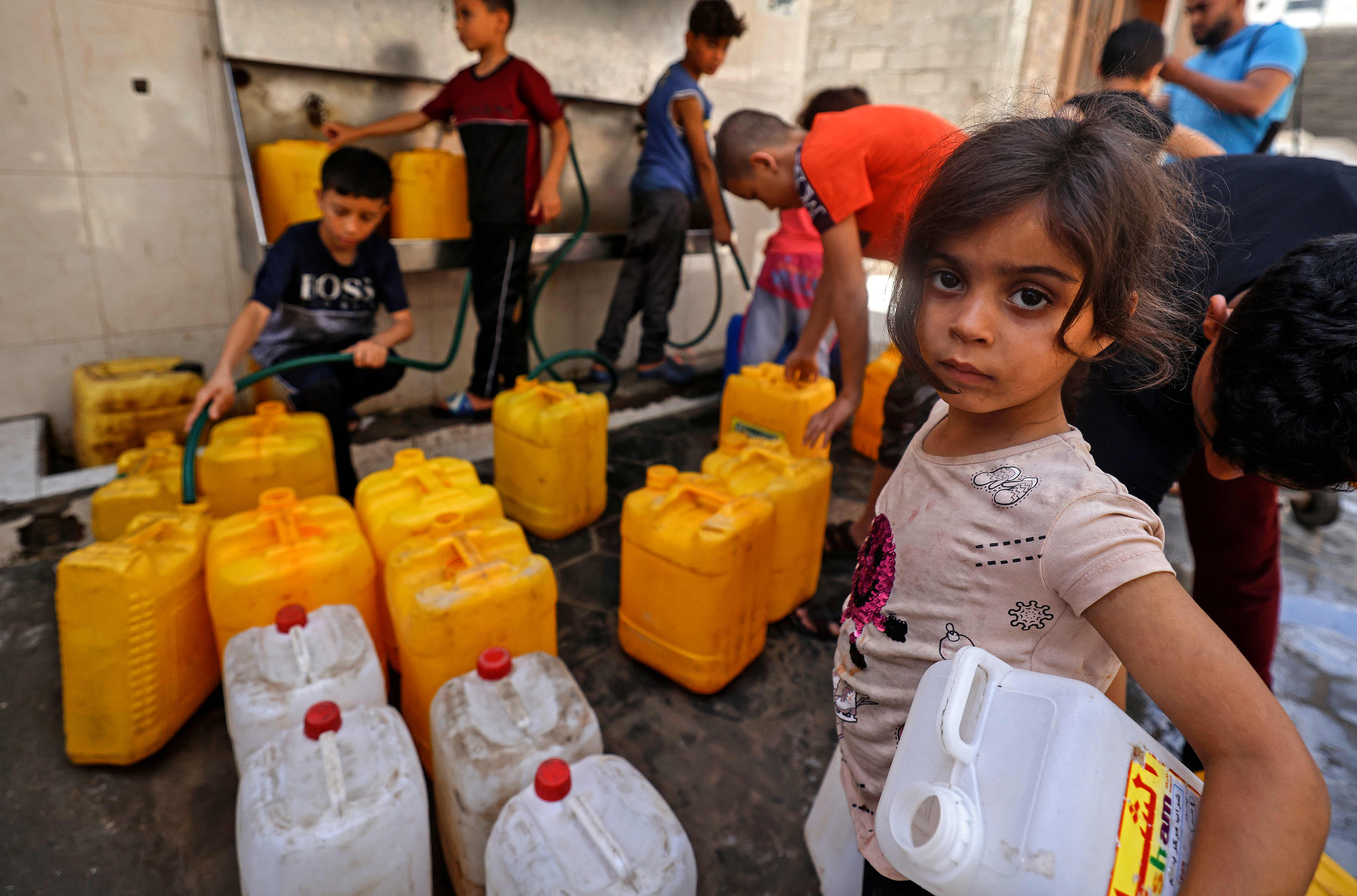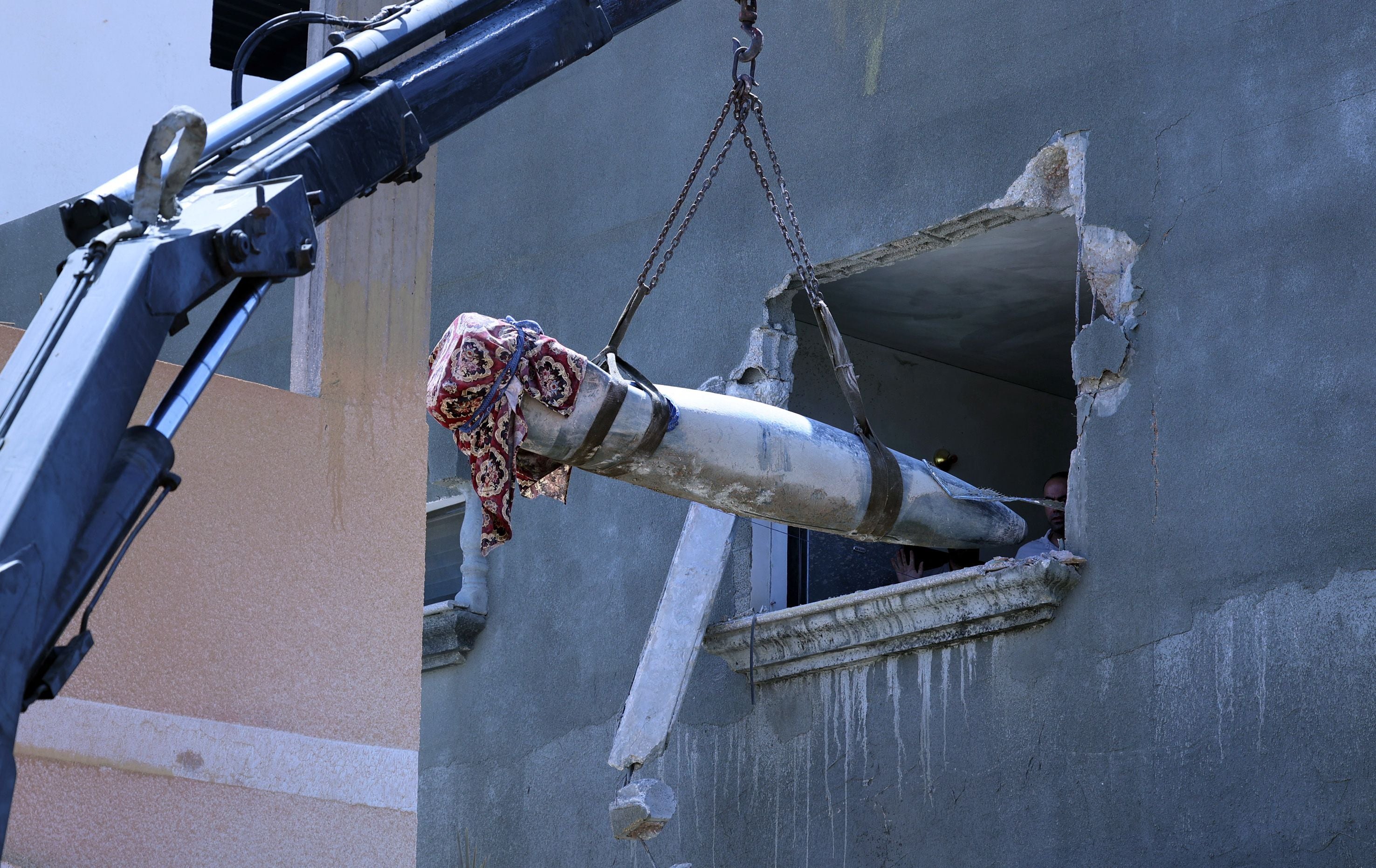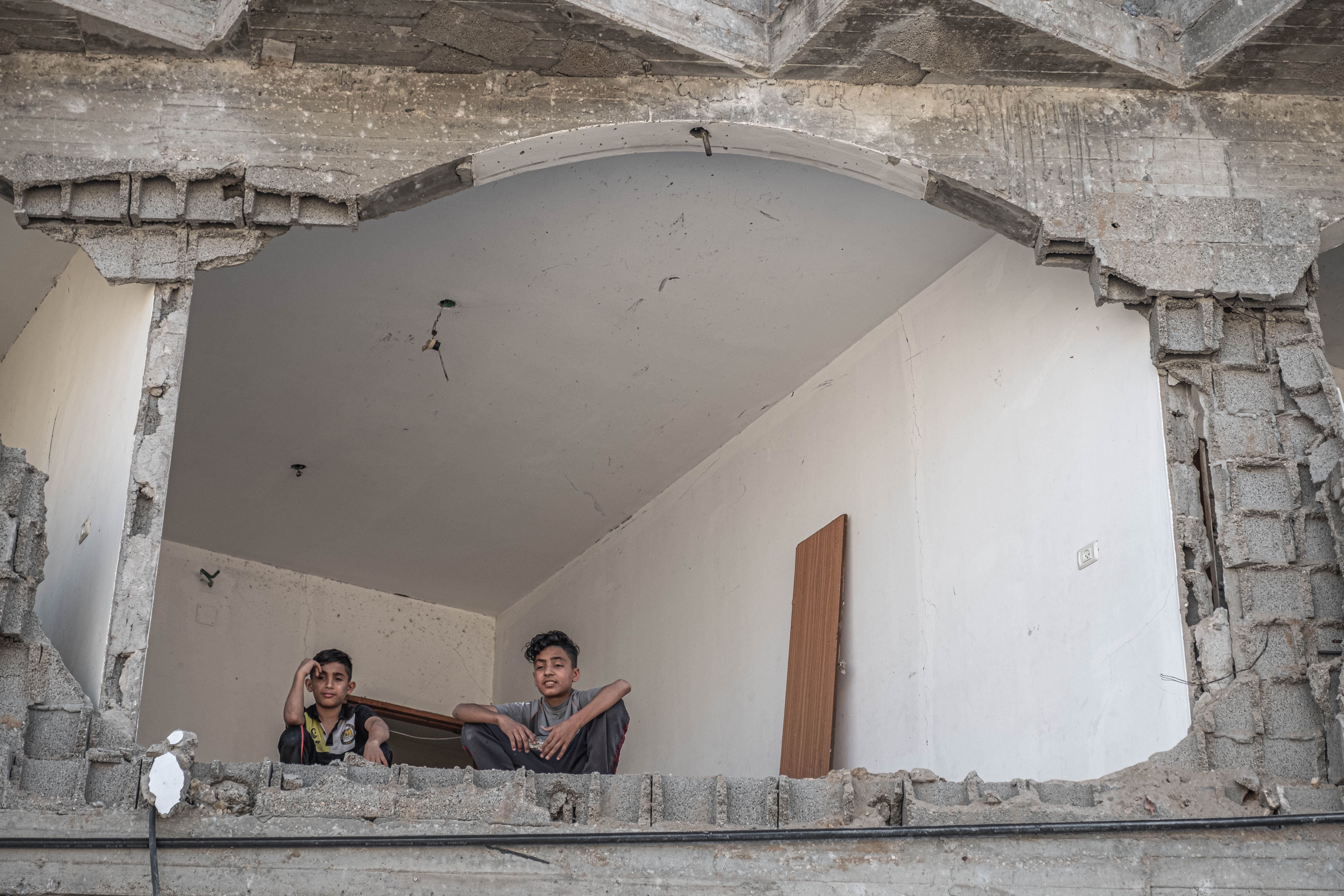Years to rebuild: Gaza’s shattered infrastructure severely damaged, warn UN and NGOs
Gaza’s hospitals, schools, power and sewage plants have all been hit in the fighting

Your support helps us to tell the story
From reproductive rights to climate change to Big Tech, The Independent is on the ground when the story is developing. Whether it's investigating the financials of Elon Musk's pro-Trump PAC or producing our latest documentary, 'The A Word', which shines a light on the American women fighting for reproductive rights, we know how important it is to parse out the facts from the messaging.
At such a critical moment in US history, we need reporters on the ground. Your donation allows us to keep sending journalists to speak to both sides of the story.
The Independent is trusted by Americans across the entire political spectrum. And unlike many other quality news outlets, we choose not to lock Americans out of our reporting and analysis with paywalls. We believe quality journalism should be available to everyone, paid for by those who can afford it.
Your support makes all the difference.Gaza could take “years” to rebuild, United Nations officials have warned, as rights groups say intense Israeli bombing of the strip has severely damaged health, education, water and energy facilities.
Hospitals, schools, desalination plants, power and sewage plants have been impacted, international NGOs and Gaza officials have said.
It has meant that swathes of the strip already have no water or electricity, while untreated sewage from some plants is pouring into the sea. Aid organisations have begun trying to raise tens of millions of dollars to help. Israeli officials have meanwhile accused Hamas of rocketing vital electricity power lines.
Speaking to The Independent, Tamara al-Rifai, spokesperson for Unrwa, the UN’s Palestinian refugee agency, warned it could take years to repair the damage. She said that this was the fourth conflict in just 13 years on the tiny enclave that has been under a long blockade and hit by the pandemic.
“Every time there is a conflict in Gaza, intense air bombardment pulverises basic infrastructure, homes, hospitals and factories,” she said.
“It then takes Unrwa and aid agencies several years to rehabilitate their premises, and many homes and livelihoods of Gazans are never rebuilt.”
Israel maintains it does everything in its power to avoid civilian casualties or destruction to civilian infrastructure.
Ferocious cross-border fighting is now in its second week, although hopes have been raised that a potential ceasefire could be announced within the next few days.
So far, 230 Palestinians have been killed, including 65 children, according to the Gaza health ministry. Medics in Israel say the death toll has risen to 12, two of them children. Hundreds on both sides have been injured.
Israel said that Hamas, the militant group running Gaza, had fired over 4,000 rockets since last Monday, more than the total number of rockets fired at Israel during the entire seven-week war in 2014.

The rocket fire has hit homes, schools and a synagogue and sent families constantly running for bomb shelters. The militants have also fired anti-tank missiles into Israel, injuring an Israeli soldier.
In Gaza the UN says that more than 72,000 people have been displaced because of the fighting, with 2,500 made permanently homeless as some of the air raids hit populated areas, levelling multi-storey buildings Israel said contained Hamas military infrastructure.
On Wednesday, Unrwa launched a $38m appeal for Gaza and the West Bank to provide immediate food, non-food, and health and psychosocial support to Palestinians. The British Red Cross also launched a crisis appeal for both Israel and Palestine on the same day, saying hospitals in Gaza, already overwhelmed by Covid-19 patients, were at “at risk of further collapse”.
International aid groups sounded the alarm about the long-term problems now faced in Gaza, a tiny, congested enclave home to two million people
International medical charity Medecins Sans Frontières called Israel’s bombardment of Gaza “inexcusable and intolerable”, saying that indirect fire had damaged several clinics in the Strip including destroying their own sterilisation room that provided treatment for hundreds of trauma and burn patients.
It said access to healthcare for casualties with life-threatening injuries is being “severely restricted” as Israeli airstrikes have damaged many roads leading to hospitals.
In addition, many medical staff are concerned for their safety while on their journeys to work and some medical supplies are running low.
Gaza’s health ministry has meanwhile appealed for nearly $50m in financial assistance, saying that in total 22 health facilities had suffered partial or complete damage in the bombardment. They added that there was now a high risk of rapid spread of Covid-19 in the shelters housing thousands of displaced people.
This week health officials reported that the only laboratory in Gaza which processes Covid-19 test results had become temporarily inoperable after an Israeli airstrike nearby.
It is not just health facilities that have been hit.
Water officials in Gaza said that half of the strip has no regular water supply because of a lack of fuel for the water pumps and damage to facilities.
Some cities were also almost completely cut off from water like Rafah, along the border with Egypt where water authorities were having to bring water in from outside.
Monther Shoblaq, director general of the Coastal Municipalities Water Utility, said the bombing had been so intense they were unable to repair and operate three waste water plants on the eastern side of the Gaza Strip, meaning they were pouring untreated sewage into the sea.
Three new offshore desalination plants, providing a third of the good quality water the authorities are able to make in Gaza, are also inaccessible and so not operational, he added.
“Some areas haven’t had water for four days,” Shoblaq told The Independent.
“This time, because of the severe airstrikes it has been impossible to move around and repair the damage,” he added.
Gaza is also on the brink of running out of fuel to power its only power station, and is currently relying on poorer quality fuel from private generators to power its turbines.
Hundreds of thousands of people across the Strip only have access to four hours of power already. Once the fuel runs out it will plunge homes and hospitals into darkness as well as massive water shortages as the pumps will stop.
Mohammed Thabeth, a spokesperson for the Electricity Distribution Company of Gaza, said the main crossing into Israel for fuel was still closed. Israeli officials told The Independent that Hamas mortars had been bombarding it, preventing the delivery of vital aid.
“We managed to secure enough fuel from the private market to keep us going for two more days. But this fuel could cause technical problems for the plant,” Thabeth said.

Several power lines to Israel have also been cut, reducing electrical supply even further. Israeli security officials told local media that Hamas rockets falling short of the border were responsible for the damage, a point Gaza officials reject.
Schools were also hit.
According to Save the Children 50 schools in Gaza – or one in 15 schools – have been damaged by Israeli airstrikes over the past week, impacting over 41,000 children. Three further schools have reportedly been damaged in Israel by rockets from Gaza.
“Attacking schools or hospitals is a grave violation against children,” Save the Children said, urging all parties to adhere to international humanitarian law and to protect them.
“The brutal truth is that no child is left unscathed, and time and time again we see that children’s lives are the hardest hit by conflict,” Jason Lee from the group added.
Additional reporting by Nedal Hamdouna in Gaza
Join our commenting forum
Join thought-provoking conversations, follow other Independent readers and see their replies
Comments